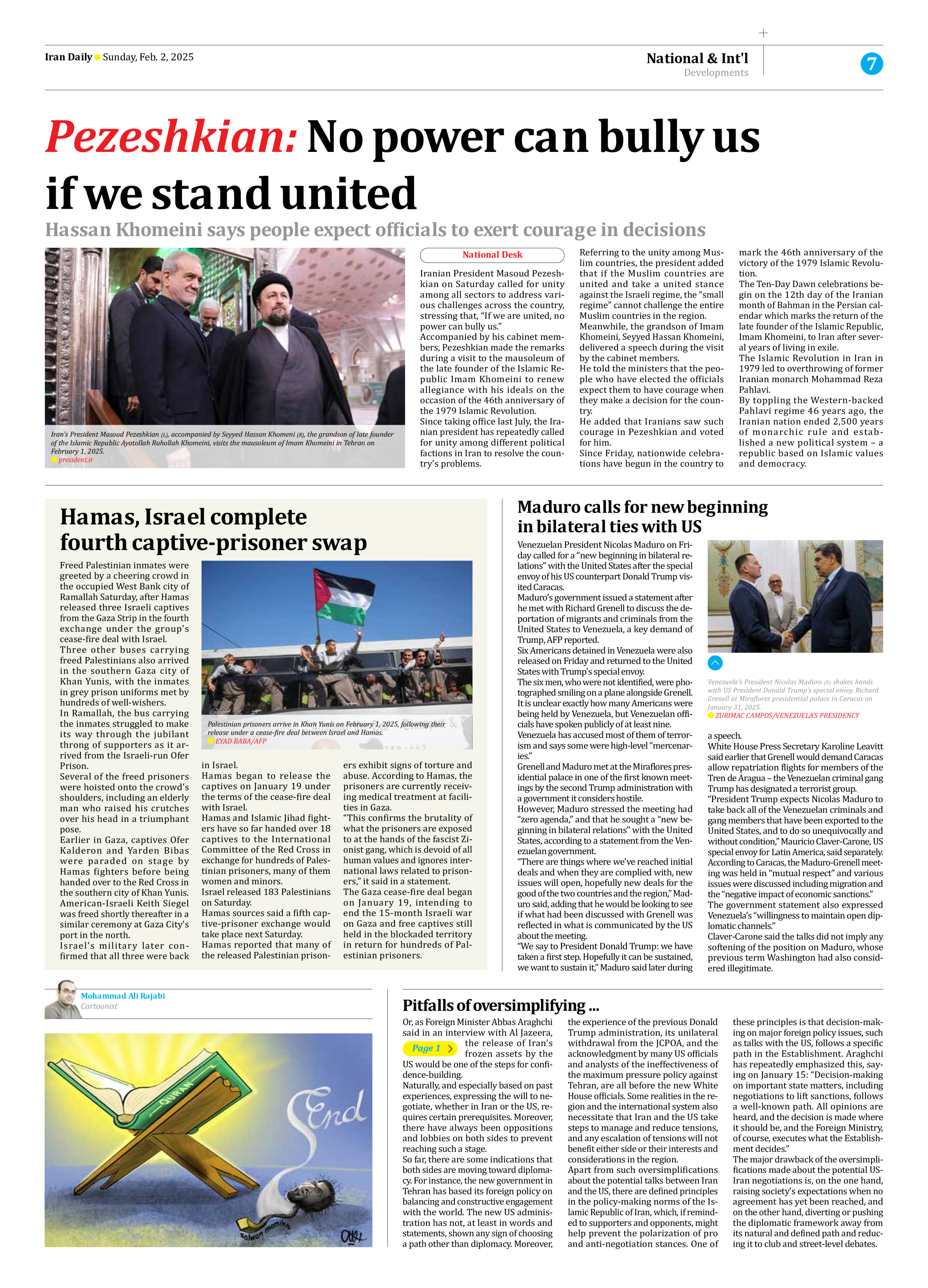
Pitfalls of oversimplifying ...
Page 1
Or, as Foreign Minister Abbas Araghchi said in an interview with Al Jazeera, the release of Iran’s frozen assets by the US would be one of the steps for confidence-building.
Naturally, and especially based on past experiences, expressing the will to negotiate, whether in Iran or the US, requires certain prerequisites. Moreover, there have always been oppositions and lobbies on both sides to prevent reaching such a stage.
So far, there are some indications that both sides are moving toward diplomacy. For instance, the new government in Tehran has based its foreign policy on balancing and constructive engagement with the world. The new US administration has not, at least in words and statements, shown any sign of choosing a path other than diplomacy. Moreover, the experience of the previous Donald Trump administration, its unilateral withdrawal from the JCPOA, and the acknowledgment by many US officials and analysts of the ineffectiveness of the maximum pressure policy against Tehran, are all before the new White House officials. Some realities in the region and the international system also necessitate that Iran and the US take steps to manage and reduce tensions, and any escalation of tensions will not benefit either side or their interests and considerations in the region.
Apart from such oversimplifications about the potential talks between Iran and the US, there are defined principles in the policy-making norms of the Islamic Republic of Iran, which, if reminded to supporters and opponents, might help prevent the polarization of pro and anti-negotiation stances. One of these principles is that decision-making on major foreign policy issues, such as talks with the US, follows a specific path in the Establishment. Araghchi has repeatedly emphasized this, saying on January 15: “Decision-making on important state matters, including negotiations to lift sanctions, follows a well-known path. All opinions are heard, and the decision is made where it should be, and the Foreign Ministry, of course, executes what the Establishment decides.”
The major drawback of the oversimplifications made about the potential US-Iran negotiations is, on the one hand, raising society’s expectations when no agreement has yet been reached, and on the other hand, diverting or pushing the diplomatic framework away from its natural and defined path and reducing it to club and street-level debates.







